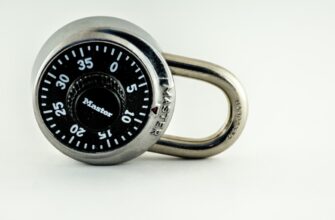- Why Anonymous Fund Storage Matters More Than Ever
- 7 Proven Methods to Store Funds Anonymously
- Critical Security Measures for Anonymous Storage
- Navigating Legal Gray Areas Responsibly
- FAQ: Anonymous Fund Storage Explained
- Is anonymous banking illegal?
- Can crypto wallets be truly anonymous?
- What’s the maximum cash I can store anonymously?
- Do offshore accounts report to my home country?
- How do I access anonymously stored funds in emergencies?
- Are anonymous methods FDIC insured?
Why Anonymous Fund Storage Matters More Than Ever
In today’s digital landscape, financial privacy isn’t just for the ultra-wealthy – it’s a fundamental right. Storing funds anonymously protects against identity theft, targeted scams, and unwarranted surveillance. With data breaches exposing 6 million records daily (IBM Security), separating your identity from your assets has become critical. This guide reveals actionable best practices to store funds anonymously while maintaining full compliance with legal frameworks.
7 Proven Methods to Store Funds Anonymously
- Cryptocurrency Hardware Wallets – Devices like Ledger or Trezor store crypto offline. Generate wallets without KYC verification and use privacy coins like Monero (XMR) for enhanced anonymity.
- Prepaid Debit Cards – Purchase with cash at retail locations. Load funds without personal details and use globally. Max limits typically $500-$2,000 per card.
- Offshore Trust Accounts – Establish through jurisdictions like Belize or Nevis. Assets are held in the trust’s name, not yours, with strict privacy laws protecting ownership details.
- Private Vault Services – Physical storage for cash/gold in Switzerland or Singapore. Providers like Ultra Vault offer anonymous rentals with biometric access only.
- Decentralized Finance (DeFi) – Use non-custodial wallets (e.g., MetaMask) with VPN/Tor. Avoid centralized exchanges requiring ID verification.
- Bearer Instruments – Physical assets like gold bars or anonymous bonds where ownership isn’t registered. Store in secure locations only.
- Shell Company Accounts – Create legal entities in privacy-friendly jurisdictions. Funds exist under the company’s EIN, not your SSN.
Critical Security Measures for Anonymous Storage
Anonymity fails without robust security. Implement these safeguards:
- Always use encrypted communication (Signal, ProtonMail) when discussing arrangements
- Employ VPN + Tor browser for all financial transactions
- Never reuse wallet addresses or accounts
- Store physical assets in Class III vaults with 24/7 monitoring
- Use multi-sig wallets requiring 2-3 keys for crypto access
Navigating Legal Gray Areas Responsibly
While anonymous storage is legal in most countries, regulators target illicit activities. Follow these guidelines:
- Declare all income to tax authorities – anonymity ≠ tax evasion
- Avoid jurisdictions on FATF blacklists
- Maintain transaction records for your own compliance audits
- Consult financial attorneys before establishing offshore structures
- Never use anonymity for money laundering or illegal transactions
FAQ: Anonymous Fund Storage Explained
Is anonymous banking illegal?
No, provided funds come from legal sources and you comply with tax regulations. Jurisdictions like Switzerland and Panama legally permit anonymous structures when properly established.
Can crypto wallets be truly anonymous?
Bitcoin offers pseudonymity, not full anonymity. For true privacy, use Monero or Zcash with Tor. Always avoid KYC exchanges when funding wallets.
What’s the maximum cash I can store anonymously?
Physical cash storage has no legal limits, but transactions over $10,000 trigger reporting. For digital methods, prepaid cards typically cap at $2,000 while crypto depends on blockchain limits.
Do offshore accounts report to my home country?
CRS-compliant jurisdictions automatically share data with 100+ countries. Choose non-CRS locations like Belize or UAE for enhanced privacy, but expect stricter due diligence.
How do I access anonymously stored funds in emergencies?
Maintain a secure dead man’s switch: Store access instructions with a bonded attorney using timed release protocols. Include multi-factor authentication details separate from daily devices.
Are anonymous methods FDIC insured?
No. Traditional insurance requires identity verification. For crypto, some providers like Coincover offer private insurance, while physical assets require separate policies from specialty insurers.








